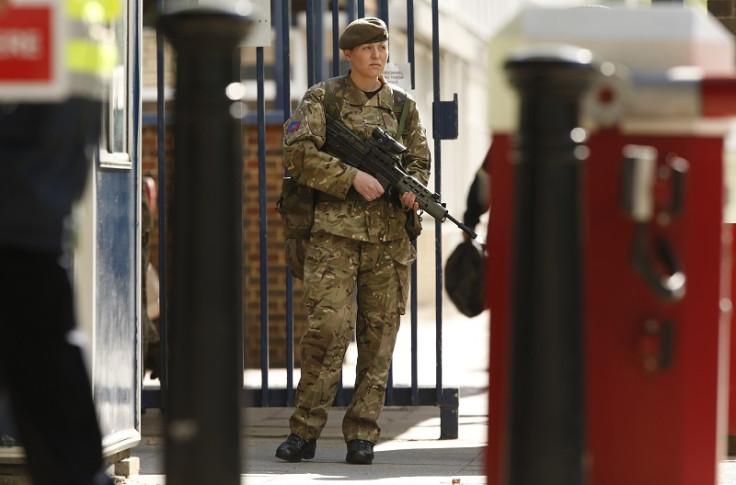British women in combat: Men vs the menstruation myth

The UK defence secretary, Michael Fallon, has said he wants to end the army's ban on women serving in frontline infantry roles. While a final decision on the move depends on researching into the long-term impact of infantry training on women, the change may well happen in the next couple of years.
"Women can fight just as effectively as men," Fallon told BBC Radio 4's Today Programme. "I think army selection should be done on the basis of ability, from now on, and not on the basis of gender."
Understandably, the announcement has reawakened the argument over whether women are physically able to withstand the physical demands of serving on the frontline. But there is a fine line between where the valid scientific argument ends, and old-fashioned sexism begins.
Currently, women are not permitted to serve in the infantry or armoured corps, where the primary aim is to "close with and kill the enemy". The physiological demands of these units are high; to join an infantry unit at recruitment level, men have to complete a run of 1.5 miles in 12 minutes and 45 seconds. They then have to carry 25kg plus a rifle and a helmet over a distance of eight miles, in just two hours.
It is indisputable that there are physical differences between men and women. Not all women, as is the same with men, would be able to stand the strain of such high physical requirements. But there is no reason why women who have had substantial training and experience in similar roles should be denied the same opportunities as men, on the basis that they might not meet the physical demands. The truth is, some women are capable, both physically and mentally, of performing on the frontlines to the same standards as men.
Misogyny disguised as concern
Surely, establishing gender-neutral requirements for any given position would go a long way to equalising the gender divide in the military. Currently, of the 160,650-strong British forces, only 15,920 are women: there are 3,000 in the Navy, 8,010 in the Army and 4,910 in the Royal Air Force.
If a woman is capable, the traditionally held beliefs that they should be "kept safe" are bigger barriers than the physical differences. The custom of infantry positions as a hyper-masculine domain is the problem, which has led to misogyny being thinly disguised as genuine concern. Arguments about ability, menstruation, sexual tension and threats to unit cohesion all stem from the tradition of men in combat.
Women are already fulfilling roles historically outlined for men in the military, yet still, sweeping generalisations are being made about the physical abilities of women. Military historian Col Mike Dewar, who served in Northern Ireland, Cyprus and Borneo, told the BBC that the upper body strength in "99.9% of women" would make it "virtually impossible" to pass the rigorous tests. That is a high statistic, with little evidential value. Along a similar vein, Major General Patrick Cordingley, a former commander of the 7<sup>th Armoured Brigade – the "Desert Rates" called the move a "politically-correct mistake". Political correctness has never been a mistake.
The only way to end the argument is to judge all women independently, on fitness, strength, agility and other criteria, to determine whether they are suited to frontline roles – in the same way men are. Those against lifting the ban worry that standards will be weakened for women, with Fallon warning of potential "improvements" to infantry training if the unit is opened up to women. But independent assessment of female candidates to gender-neutral standards is the only way to ensure a strong military and equality.
© Copyright IBTimes 2025. All rights reserved.





















